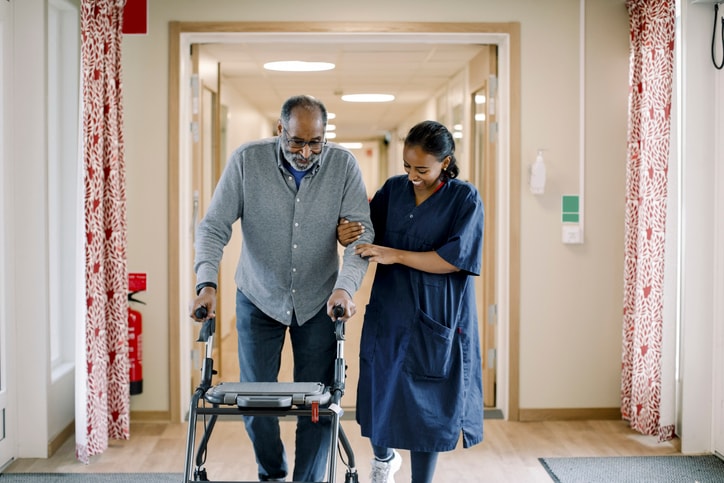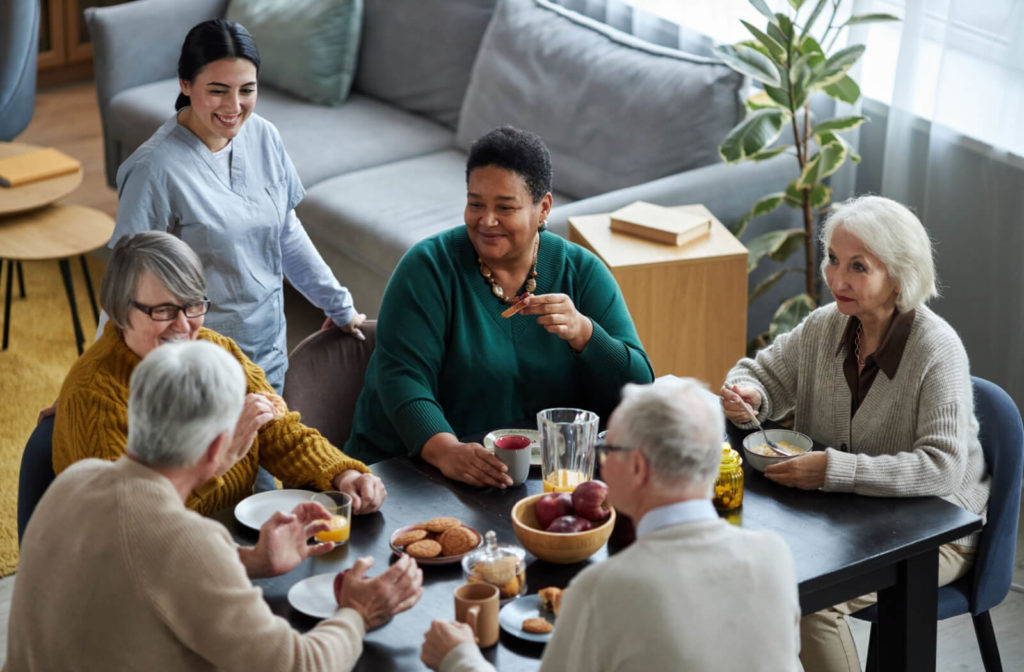Compare the most recommended Assisted Living homes in your area today.
Compare the most recommended Assisted Living homes in your area today.
Blog Article
How Helped Living Facilities Enhance Lifestyle for Those With Dementia
Aided living facilities play a crucial function in improving the high quality of life for individuals with dementia by applying customized treatment techniques that cater to their distinct needs. These atmospheres integrate organized activities with emotional assistance, promoting a feeling of neighborhood while guaranteeing security and freedom. The assimilation of appealing programs and family members involvement further enriches the homeowners' experience. Yet, the intricacies of mental deterioration care continue to advance, triggering a more detailed evaluation of just how these facilities adjust and innovate to satisfy the difficulties faced by homeowners and their family members. What implications does this have for future treatment versions?
Personalized Treatment Program
(Memory Care Facility Charlotte)Oftentimes, people with mental deterioration call for customized support that resolves their one-of-a-kind needs and preferences. Customized treatment plans are necessary in assisted living settings, as they ensure that each resident gets suitable attention and services. These strategies are created collaboratively, entailing health care specialists, caregivers, and household members to create a detailed review of the person's medical background, cognitive capacities, and personal interests.
A well-structured individualized care strategy commonly consists of particular objectives related to health and wellness monitoring, everyday tasks, and social interaction. It makes up the person's cognitive decline while advertising independence and self-respect. Regular analyses and updates to the treatment plan are important, as they enable adjustments based on the resident's developing condition and preferences.
Secret parts of these plans often include medication management, behavioral assistance approaches, and dietary guidelines customized to the individual's needs (Assisted Living). By concentrating on customized treatment, helped living centers can cultivate an encouraging environment that improves the lifestyle for individuals with mental deterioration, ultimately adding to their total wellness and happiness. This individualized method values the individuality of each resident, ensuring they obtain the thoughtful care they require

Engaging Activities and Programs
Involving homeowners in meaningful activities and programs is important for enhancing the high quality of life for people with mental deterioration. These tasks not just give pleasure but also boost cognitive function and promote social interaction, which can alleviate feelings of isolation usually experienced by citizens.

Furthermore, customized programs are crucial in making sure that each citizen's special preferences and abilities are acknowledged. This customized method motivates involvement, boosts self-confidence, and supplies a feeling of accomplishment.
Additionally, regular assessments of homeowners' passions can aid team customize and adjust tasks to far better suit evolving requirements. By prioritizing appealing activities and programs, aided living centers can significantly enhance the overall experience and emotional health of individuals coping with mental deterioration.
Safe and Helpful Environment
Developing a secure and supportive setting is vital for people with mental deterioration, as it straight affects their health and lifestyle. Helped living facilities are made with details attributes that promote safety and security while cultivating a complacency and convenience. These environments focus on accessibility, with formats that lessen complication and urge freedom, enabling locals to browse their surroundings extra easily.
Safety and security procedures, such as secure entryways and exits, protect against straying and unauthorized access, which are vital considerations for people with dementia (Memory Care). Personnel are trained to recognize the distinct demands of citizens, giving customized assistance and supervision to guarantee their safety and security. Furthermore, the consolidation of calming colors and familiar objects can assist reduce anxiety and disorientation, developing a much more reassuring atmosphere.
Along with physical safety, psychological support is vital. Facilities often use personnel who are not only proficient in caregiving yet likewise learnt empathy and communication, promoting depend on and relationship with homeowners. This holistic strategy adds to a nurturing setting where people really feel valued and recognized, inevitably boosting their general high quality of life.
Social Communication and Area
An encouraging environment not only focuses on safety but also cultivates possibilities for social communication and community involvement, which are important for individuals with dementia. In assisted living facilities, organized activities and communal rooms encourage residents to get in touch with one another, reducing feelings of isolation frequently experienced by those with cognitive disabilities.
Social interaction plays a significant role in boosting emotional wellness and cognitive feature (Memory Care). Involving with peers in group tasks such as video games, arts and crafts, or exercise not only stimulates cognitive abilities yet also nurtures a sense of belonging. Facilities usually arrange events that advertise socializing, allowing locals to develop relationships and share experiences, which can be particularly valuable for those with dementia
Furthermore, a vivid area environment can improve the total lifestyle for locals. Team member are trained to promote communications and support homeowners in developing meaningful connections. By producing a culture of engagement, helped living facilities help individuals with dementia keep social abilities and enhance their mood, inevitably adding to a much more fulfilling life experience. This community-oriented method is vital in handling the obstacles related to mental deterioration, advertising a sense of function and connection for citizens.
Family Participation and Assistance
Household involvement is vital in sustaining individuals with mental deterioration in assisted living environments. Proactively involving family members not only provides psychological convenience to locals however also promotes a feeling of belonging and continuity in their lives. When family members join care preparation and day-to-day activities, they contribute useful understandings regarding the individual's choices, Read Full Article history, and needs, which can boost customized care.
In addition, routine family visits can significantly enhance the psychological health of locals, minimizing feelings of seclusion and anxiety. Member of the family can likewise help in preserving cognitive function by involving their enjoyed ones in familiar conversations and activities. This communication strengthens individual identity and aids citizens really feel valued and understood.

Conclusion
Finally, helped living centers substantially enhance the quality of life for individuals with mental deterioration via personalized care plans, engaging tasks, and a secure setting. These aspects foster cognitive excitement, psychological health, and a feeling of self-reliance. Normal social communications and strong household involvement contribute to meaningful connections and emotional support. Jointly, these factors produce an alternative strategy to care that addresses the distinct needs of people with dementia, promoting general well-being and dignity.
Report this page